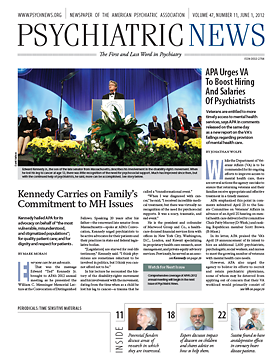In 2009, nearly 14,000 babies were born in the United States with drug-withdrawal symptoms, resulting in total hospital charges of approximately $720 million.
This is one of the key findings of a study in the May 9 Journal of the American Medical Association designed to quantify the national incidence of neonatal abstinence syndrome (NAS) and the costs associated with delivery of newborns affected by the condition.
For the study, Stephen Patrick, M.D., M.P.H., of the University of Michigan Health System (UMHS) led a team of researchers from UMHS’s Department of Pediatrics and Communicable Diseases and the University of Pittsburgh’s Department of Obstetrics and Gynecology in reviewing national hospital-discharge data from 2000, 2003, 2006, and 2009.
Statistics about infants born with NAS were obtained through the Health-care Cost and Utilization Project’s (HCUP) nationally representative Kids’ Inpatient Database. The researchers also pooled data from HCUP’s National Inpatient Sample on mothers identified as prebirth users of opiates.
The researchers found that the number of newborns delivered with NAS increased from a rate of 1.2 per 1,000 hospital births in 2000 to 3.4 per 1,000 hospital births in 2009. The number of opiate-using mothers grew at an even greater rate—from 1.2 per 1,000 hospital births in 2000 to 5.6 per 1,000 hospital births in 2009.
Compared with all other hospital births, newborns with NAS were also found more likely to suffer from a variety of adverse health conditions. In 2009, babies delivered with NAS experienced greater rates of respiratory diagnoses (31 percent vs. 9 percent), low birth weight (19 percent vs. 7 percent), feeding difficulty (18 percent vs. 3 percent), and seizure disorders (2 percent vs. 0.1 percent).
These complications contributed to increased health care expenditures, the researchers found, with mean hospital charges for newborns with NAS increasing from $39,400 per discharge in 2000 to $53,400 in 2009. These figures are more than five times the cost of all other hospital births, which rose from a mean of $6,600 in 2000 to $9,500 in 2009.
Similarly, the average length of hospital stay for newborns with NAS (16.4 days in 2009) dwarfed that for all other hospital births (3.3 days in 2009).
The researchers also noted that Medicaid paid for 77 percent of the charges associated with the delivery of newborns with NAS in 2009, up from 69 percent in 2000.
The study was supported by a grant from UMHS’s Robert Wood Johnson Foundation Clinical Scholars Program, with which two of the study authors are affiliated.

